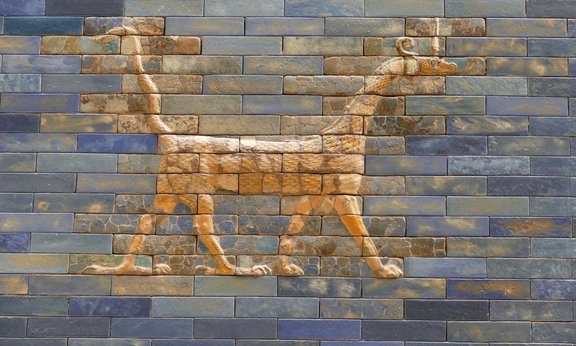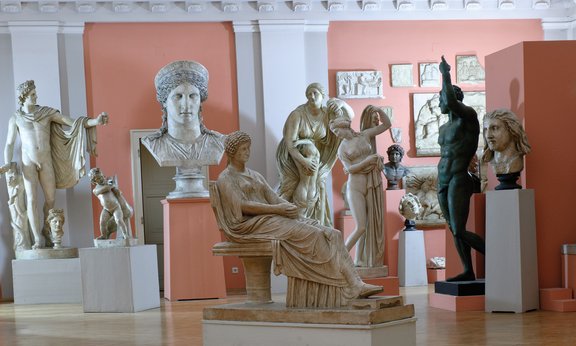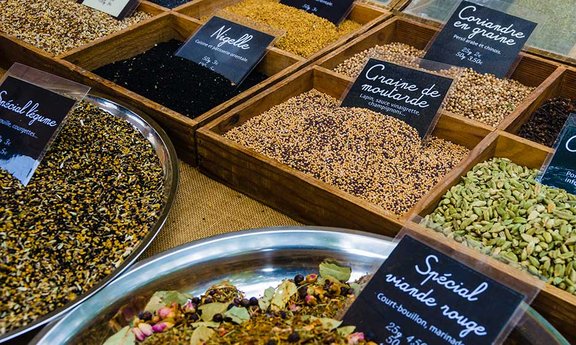Master’s Programme Romance Studies
Would you like to work academically with two or more Romance languages and organise your studies yourself, e.g. via a stay abroad or a research project?
The Master’s Degree Programme in Romance Studies consists of three parts:
- a deepening of language proficiency in one of the three languages offered (French, Italian, Spanish);
- Romance studies beyond language acquisition, in particular linguistics, literature and culture studies, and
- an elective module where students may pick courses offered in other Master’s degree programmes.
For the latter, electives at the Faculty of Language, Literature and Culture are of particular interest.
Please note: the language of instruction for this programme is German.
Study Code
UC 066 849
FAQ
Graduates have highly specialised knowledge in the fields of language, literature and cultural studies. They are able to demonstrate their competence in these fields and at the interface to other philological-cultural-studies-related subjects by scientifically correct formulation and substantiation of arguments and by finding innovative solutions to problems. Because of the relatively extensive elective part, they are able to apply their specialist knowledge in an interdisciplinary way.
In addition to a thorough specialist knowledge, special emphasis is placed on the following key qualifications:
- communicative skills (written and oral expressiveness)
- mental flexibility and ability to respond positively to criticism (logical thinking and argumentation, fast understanding of complex relationships, developing of creative solution strategies)
- intercultural and culture-crossing competence (dealing with different traditions of thought)
The subject-specific skills in detail:
- Command of language
Command of a foreign language at level C2 of the CEFR, skills in the fields of text reception and text production, advancing of language skills with stays abroad (e.g. ERASMUS). - Linguistics
Scientific study of the structures of French / Italian / Spanish; creating an awareness of the respective language and the mechanisms of action in various regional, social, situational and historical contexts; - Literary studies
Critical examination of texts of various origin (also film, chanson); creating an awareness for the interdependency of culture and text). - Civilisation and cultural studies
Creating an awareness for the political, social and economic aspects of the Romance language area in their respective historic context.
Precisely because the above-mentioned competences are imparted, graduates enjoy a variety of career opportunities in different fields: international relations, culture, media, public relations, language mediation, tourism, publishing, administration, marketing, economy, science.
Graduates tracking: Shows which occupational fields students enter after graduation
Doctoral Programmes
More offers
Faculty of Language, Literature and Culture Department of Romance Studies Examination Office Information for students with disabilities
Curriculum
From the field
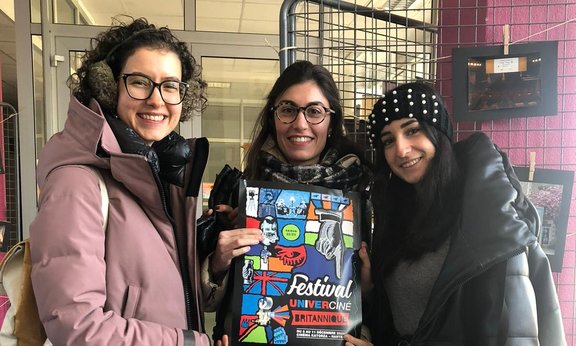
EUniverCiné in Nantes
Startschuss für das zweijährige Erasmus+-Projekt EUniverCiné, das von der Italianistik der Universität Nantes initiiert wurde und an dem neben der Innsbrucker Romanistik (Evelyn Ferrari und Sabine Schrader) und der Translationswissenschaft (Marco Agnetta) FilmwissenschaftlerInnen und ItalianistInnen der Universitäten Perugia Stranieri, Banja Luka, Genua und Roma La Sapienza beteiligt sind.
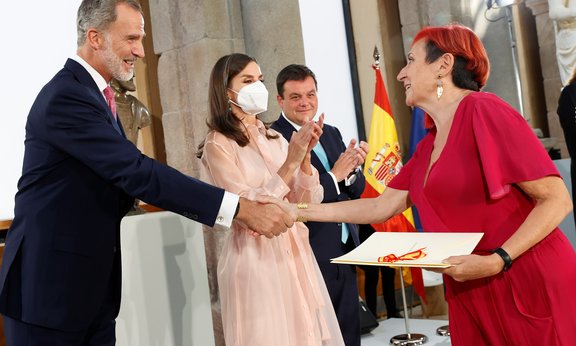
Staatspreis für Elia Eisterer-Barceló
Die Autorin und ehemalige Lehrende am Institut für Romanistik Elia Eisterer-Barceló erhielt Mitte Juli vom spanischen König Felipe VI. den mit 20.000 Euro dotierten spanischen Staatspreis für Literatur. Aufgrund der Pandemie konnte die Feier für die 29 Preisträger*innen des Premio Nacional de Cultura 2020 erst in diesem Jahr stattfinden.
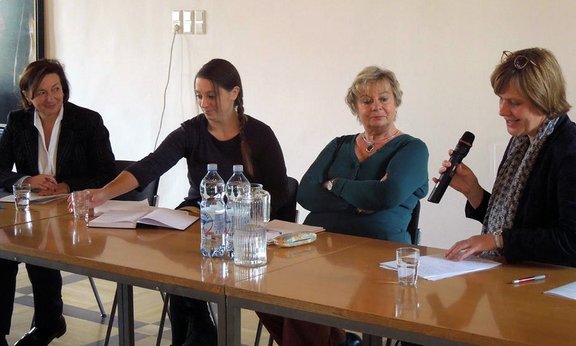
Erinnern und Übersetzen
Am 10. und 11. Oktober 2019 fand in der Claudiana die internationale Tagung Translating Cultural Memory in Fiction and Testimony – Memory Studies and Translation Studies in Dialogue statt, die von Claudia Jünke (Institut für Romanistik) und Désirée Schyns (Universität Gent) organisiert wurde.
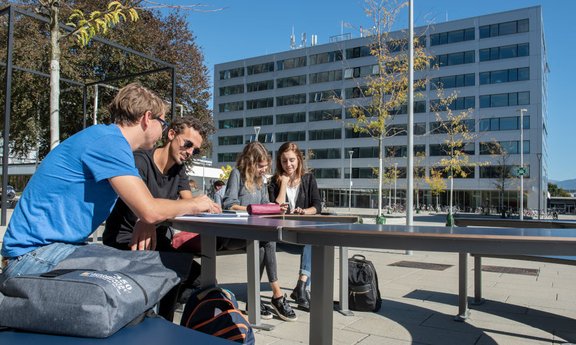
Zentrale Studienberatung
Wir sind die erste Anlaufstelle bei allen Fragen rund ums Studium für Schüler*innen, Studieninteressierte und Studierende sowie Eltern und Lehrer*innen.
Related studies

English and American Studies (Master)
Master of Arts

Educational Sciences (Master)
Master of Arts

Romance Studies (Master)
Master of Arts



